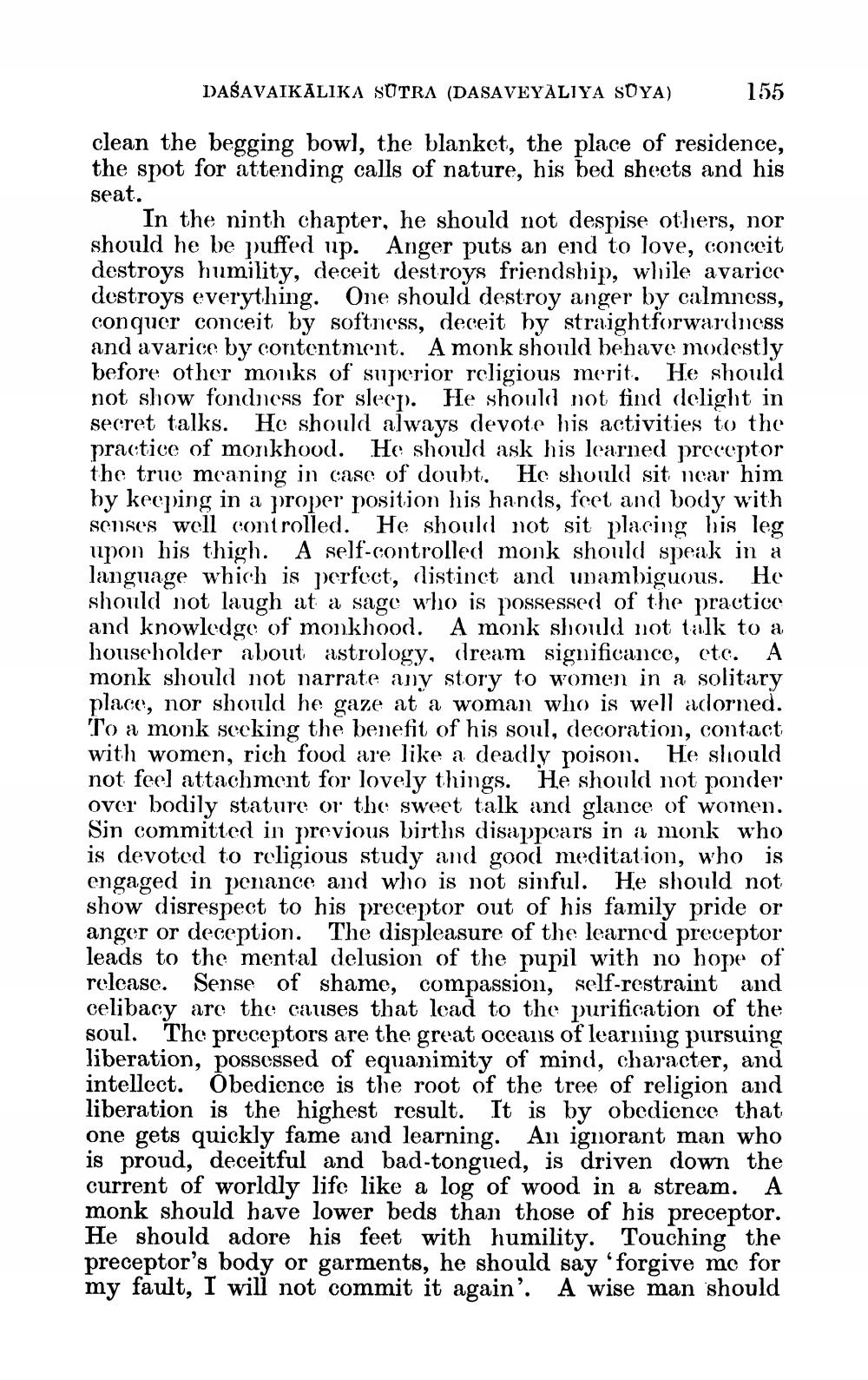________________
DAŠAVAIKĀLIKA SUTRA (DASAVEYALIYA SOYA)
155
clean the begging bowl, the blanket, the place of residence, the spot for attending calls of nature, his bed sheets and his seat.
In the ninth chapter, he should not despise others, nor should he be puffed up. Anger puts an end to love, conceit destroys humility, deceit destroys friendship, while avarice destroys everything. One should destroy anger by calmness, conquer conceit by softness, deceit hy straightforwardness and avarice by contentment. A monk should behave modestly before other mouks of superior religious merit. He should not show fondness for sleep. He should not find delight in secret talks. He should always devote his activities to the practice of monkhood. He should ask his learned preceptor the true meaning in case of doubt. He should sit near him by keeping in a proper position his hands, feet and body with senses well controlled. He should not sit placing his leg upon his thigh. A self-controlled monk should speak in a language which is perfect, distinct and unambiguous. He should not laugh at a sage who is possessed of the practice and knowledge of monkhood. A monk should not talk to a householder about astrology, dream significance, etc. A monk should not narrate any story to women in a solitary place, nor should he gaze at a woman who is well adorned. To a monk seeking the benefit of his soul, decoration, contact with women, rich food are like a deadly poison. He should not feel attachment for lovely things. He should not ponder over bodily stature or the sweet talk and glance of women. Sin committed in previous births disappears in a monk who is devoted to religious study and good meditation, who is engaged in penance and who is not sinful. He should not show disrespect to his preceptor out of his family pride or anger or deception. The displeasure of the learned preceptor leads to the mental delusion of the pupil with no hope of release. Sense of shame, compassion, self-restraint and celibacy are the causes that lead to the purification of the soul. The preceptors are the great oceans of learuing purs
suing liberation, possessed of equanimity of mind, character, and intellect. Obedience is the root of the tree of religion and liberation is the highest result. It is by obedience that one gets quickly fame and learning. An ignorant man who is proud, deceitful and bad-tongued, is driven down the current of worldly life like a log of wood in a stream. A monk should have lower beds than those of his preceptor. He should adore his feet with humility. Touching the preceptor's body or garments, he should say 'forgive me for my fault, I will not commit it again'. A wise man should




